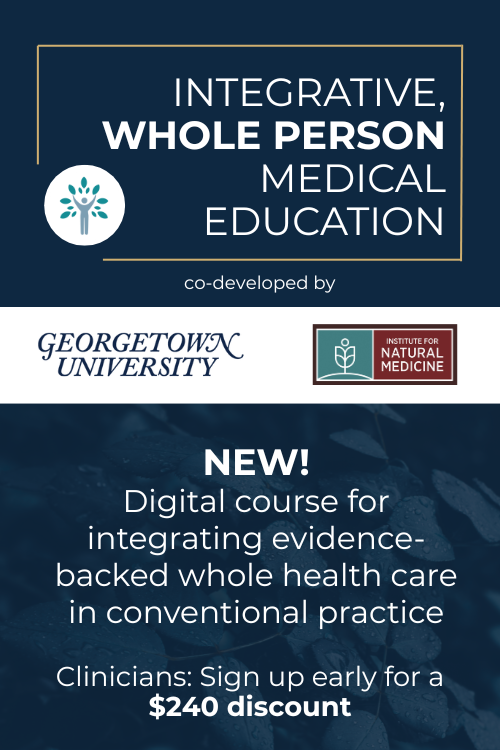Imagine knowing your health risks before symptoms appear and understanding exactly which lifestyle changes could prevent illness. This is the promise of precision medicine—medical care tailored not just to your condition, but to your unique biology. Personalizing care helps everyone get the right treatment at the right time.
For a growing number of naturopathic doctors, precision medicine is a powerful extension of their foundational principles: treating the root cause, respecting individuality, and supporting the body’s innate ability to heal.
While many patients respond well to dietary changes, movement, stress reduction, and natural therapies, others require a customized roadmap to reach optimal health. That’s where precision medicine becomes a valuable tool. By incorporating advanced genetic testing, microbiome analysis, and metabolic profiling, qualified NDs can uncover hidden factors contributing to illness as well as resilience. In some cases, this may even help identify early markers of chronic disease, long before noticeable symptoms appear.
Though much of precision medicine has centered around targeted pharmaceutical treatments for conditions like cancer and autoimmune disease, NDs are adapting this evolving science to support natural, non-drug approaches.
Why NDs and precision medicine align
Naturopathic doctors are trained to diagnose, prevent, and treat both acute and chronic illnesses. At the heart of their practice is a commitment to identifying the underlying causes of disease and addressing the whole person, not just their symptoms. NDs work closely with patients to make sustainable lifestyle and environmental changes. For many, this approach leads to measurable improvements in health and well-being. But not always.
Some patients plateau. Others face complex or chronic conditions that don’t respond as expected. In these cases, NDs may dig deeper, exploring emerging tools and technologies to gain a clearer picture of what’s happening inside the body. That’s where precision medicine comes in.
By incorporating insights from genetics, the gut microbiome, and the metabolome (the collection of all metabolically active molecules in the body), naturopathic doctors can better understand the unique biological makeup of each individual. This allows for personalized recommendations—what to eat, what to avoid, how to move, and which supplements or botanicals may correct imbalances or deficiencies. In short: treatment plans tailored to the individual, not the diagnosis.
How precision medicine works
Despite our many differences, human DNA is approximately 99.5 percent identical from person to person. It’s the remaining 0.5 percent that contributes to differences in health, disease risk, and how we respond to the world around us. Among the most studied of these variations are single-nucleotide polymorphisms, or SNPs (pronounced “snips”). Some SNPs are harmless. Others may increase a person’s susceptibility to environmental toxins, alter how they metabolize certain medications, or elevate the risk of developing specific diseases.
Thanks to the increasing accessibility of CLIA–certified genetic testing services, it’s now easier than ever for individuals to access detailed reports on hundreds of thousands of SNPs. These reports can highlight genetic predispositions for conditions such as late-onset Alzheimer’s, hereditary hemochromatosis, Parkinson’s disease, celiac disease, and macular degeneration.
NDs trained in the use of precision medicine can take this raw genetic data even further. Using advanced platforms like Opus23, a bioinformatics suite developed by a licensed naturopathic doctor, clinicians integrate genetic information with microbiome profiles and metabolic data. The result is a multidimensional map of the patient’s physiology.
From data to personalized care
Connecting personalized biology with evidence-based interventions, naturopathic doctors can identify which lifestyle changes, nutrients, or botanical compounds are most likely to benefit a specific individual, based on their unique profile.
Instead of relying on a one-size-fits-all protocol, NDs may suggest targeted, lower-impact therapies that aim to increase treatment effectiveness while minimizing the risk of side effects. In addition, many naturopathic practitioners trained in this area use precision medicine to evaluate potential drug–gene interactions, a crucial step when prescribing pharmaceuticals or coordinating care with other providers.
A natural evolution of whole person care
At its core, precision medicine reflects the same philosophy naturopathic doctors have always practiced: treat the individual, not just the disease. By integrating modern bioinformatics with time-tested principles of whole person care, NDs are helping patients take more informed, personalized steps toward healthier futures.
Thanks to Peter D’Adamo, ND, for contributing to this article.







